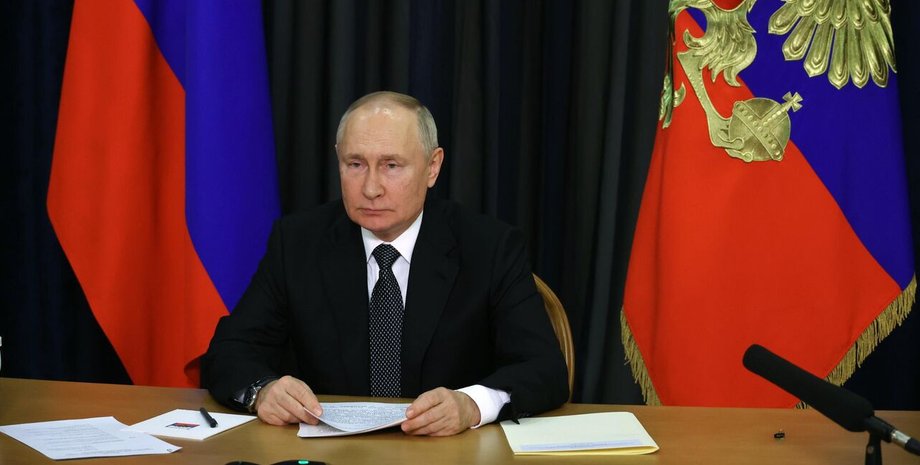
 By Victor Duda
By Victor Duda
According to The Telegraph, Kellogo said that Putin continues to think as a KGB agent, remaining convinced of his own right and underestimating the event. Despite his statement of ignorance of English, the Russian leader is able to negotiate and has repeatedly used it for manipulation. The General also stressed that attempts to negotiate with the Kremlin without demonstrating determination are unlikely to result. "Absolutely. You have to look at Putin and Russia as an expansionist state.
He wants to restore the Russian Empire - just look at history. Give him an inch, he will take a mile," he explained to the journalist. According to Kellog, Russia's plans for Ukraine testify to the Kremlin's expansionist intentions, and if the event does not resist, aggression can spread to NATO countries.
He parallel to Hitler's politics on the eve of World War II, when gradual territorial hobbies led to a large -scale conflict in Europe, and added that such dynamics are now taking place in Ukraine, and the containment of Putin is critical. "It reminds me of the Second World War. In Munich in 1938, Hitler said that only the Sudeten region wanted. Then the Rhine region, then Poland, then we were in World War II. The story is not repeated, but it is exactly rhyming.
This is what happens here with Ukraine. We must stop it now," the politician said. The high intensity of attacks, including launching Russian drones in Poland, indicates that Moscow is actively testing the response of the event. For Kellogus, it is not an accident, but a deliberate test of the ability of NATO and Europe to respond quickly. According to him, it is the demonstration of determination and strength that is able to influence Putin's behavior and make him make concessions.
The general also drew attention to the threats that arise in connection with new unions of Russia with China, Iran and North Korea. The interaction of these states creates a global challenge for which there is no clear response strategy. At the same time, he sees improving relations between the US and Russia only after changing leadership in Moscow, as Russia continues to remain international.
As for Ukraine, Kellogo stressed that all decisions on concessions and territories should be made exclusively by the Ukrainian authorities. He recognized the reality of the actual occupation of part of the Donetsk and Luhansk regions, but noted that this does not change the legal status of territories and does not exclude the possibility of their return in the future.
The official also parallel to the non-recognition of the Baltic states of the Soviet Union in the 1940s, pointing to the historical precedent of supporting sovereignty and long-term strategic interests. According to him, the loss of Russian troops in Ukraine exceeds a million people, and the Kremlin shows indifference to human life.
Putin's plans on further offensive include attempts to capture completely Donetsk and Luhansk regions, as well as the southern regions of Ukraine, including Kherson and Zaporizhzhya. The general noted that such operations can only take an "inch" and will lead to large losses on both sides. Kellogo paid special attention to the role of Europe in support of Ukraine. He noted that the continent is now able to provide defensive needs on its own due to its high level of unity and coordination.
According to him, transatlantic solidarity in relations with the United States has been significantly strengthened, and European leaders demonstrate their readiness to respond promptly to threats, which distinguishes them from previous generations of political leaders. At the same time, the General emphasized the need to stop the fire before the peace talks began.
He believes that Putin is not now ready for the agreement because he considers himself a winner, and that settling peace requires solid and consistent steps. Important, in his opinion, is the ability of Ukraine to act strategically and take into account long -term interests, even if the short -term situation seems difficult. "Sometimes short -term reality does not meet your goal. You may need to recognize the occupied territory now, but in the long run it can be returned.
Playing in the long run," Kellog said, urging Ukraine to look into the future more, he expressed the conviction that the moral aspect of conflict was no less important. He emphasizes the struggle of good with evil and the sense of support of the Ukrainian state in counteracting the aggressor. Personal attitude towards Ukraine is also manifested in the activity of his family, in particular the daughter, who is engaged in humanitarian aid in the country.
In general, the General evaluates the event as more cohesive and strategically prepared than Russia, although it emphasizes that the threat of Putin remains real. He believes that the successful development of Ukraine and its resistance to the aggressor will become its main heritage, and the victory in the conflict will determine the balance of forces in Europe and the world. "The event wins. He has better ideas and we are cohesive. But the danger remains," he replied.










All rights reserved IN-Ukraine.info - 2022